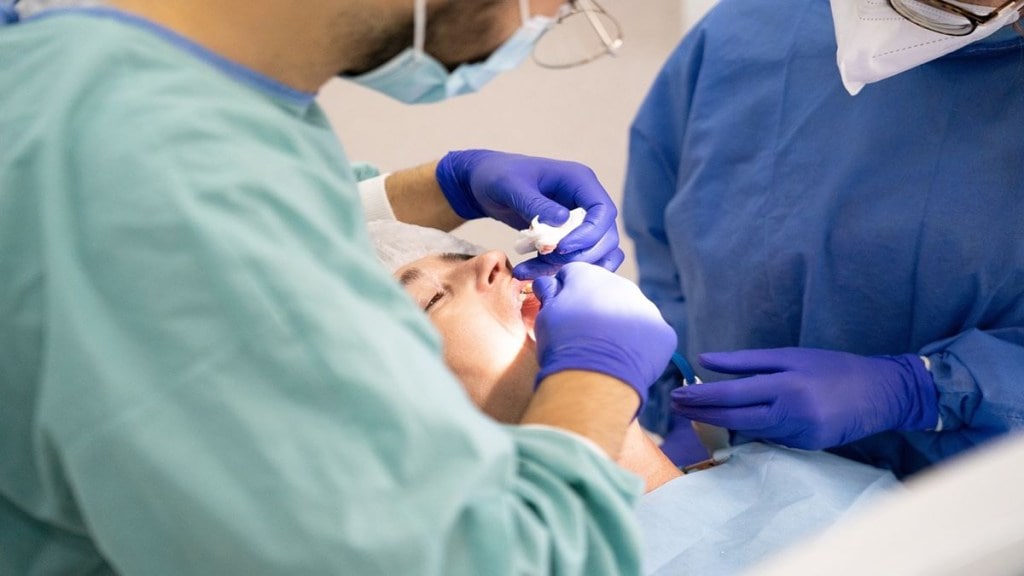A recent global health survey had revealed that only 45 per cent Indians brush their teeth twice daily as compared to the 78-83 per cent that China, Colombia, Italy, and Japan have reported.
Studies suggest oral diseases affect nearly 3.5 billion people worldwide. Despite being largely preventable, oral diseases pose a major health burden for many countries and affect people throughout their lifetime, causing pain, discomfort, disfigurement, and even death.
According to the Global Burden of Diseases, untreated dental caries (tooth decay) in permanent teeth is the most common health condition. Recently, the World Health Organization (WHO), published a global review of oral health that revealed that despite great improvements in the oral health of populations in several countries, global problems persist.
‘Lack of awareness about oral hygiene’
According to Bhawna Sikka, Category Head – Oral Healthcare, Haleon India, when it comes to oral healthcare, there exists a lack of education and awareness on what oral hygiene is, what are the signs one should look out for, and why consistent oral hygiene is important.
“While most consumers know the basis of oral healthcare, many still do not follow it, and only visit dentists when their problems have become unmanageable. However not undergoing routine dental checkups may lead to a bigger risk thus affecting the overall health as well. Considering the rise in various dental problems and its effect on overall health, The Government of India and expert bodies have been taking up various initiatives to spread awareness on improving Oral Health,” Sikka told Financial Express.com.
According to data by the WHO, there only exists 1 dentist for about 10,000 Indian patients, which is also a challenge that contributes to the lack of awareness amongst Indians about oral hygiene.
What are some of the dental health issues prevalent in India?
Some of the most common ones include Dental caries (tooth decay), Periodontal (gum) diseases like gum recession, bleeding of gums, inflammation, redness etc, tooth Sensitivity, Halitosis (bad breath), Yellowing of Teeth, stained teeth etc.
“…the important thing is that Oral diseases are much more prevalent than chronic systemic diseases. Almost 2.3 billion people globally suffer from cavities in permanent teeth. Periodontal disease affects 20-50 percent of the global population,” Swati Agarwal, Director, Research & Development, Colgate, told Financial Express.com.
According to the World Health Organization (WHO), over 95% of adults in India have dental caries, and over 50% of adults have periodontal disease. Additionally, there is a lack of awareness among the general population on the importance of oral health, the need for regular dental checkups, and what impact it has on the overall health of an individual.
“The status of oral health in India remains a significant concern. Despite progress in recent years, the country still faces challenges in providing adequate dental care to its population. Poor oral hygiene, limited access to dental services, and a lack of awareness contribute to prevalent dental issues such as cavities, gum diseases, and tooth loss. Furthermore, rural areas and marginalized communities often experience a greater disparity in oral health outcomes. Initiatives focusing on education, preventive care, and increased dental infrastructure are necessary to improve the oral health status across India,” Dr Neeraj Verma, Senior Consultant Orthodontist Indraprastha Apollo Hospitals told Financial Express.com.
Dr. Verma also pointed out that the coronavirus pandemic has had a significant impact on oral health in India. “Due to lockdown measures and restricted access to dental clinics, routine dental check-ups and treatments were delayed or canceled, leading to a rise in untreated dental issues,” he added.
Furthermore, the prolonged use of masks and decreased social interactions contributed to an increase in dry mouth and bad breath, he said. Overall, the pandemic has underscored the importance of maintaining oral health amidst challenging circumstances, he added.
Poor oral hygiene can affect overall well-being
There is growing research on the relationship between Oral and systemic health. “Poor Oral health has an impact on overall health and vice versa. Poor Oral hygiene would lead to plaque build-up which is nothing but a sticky film of bacteria that constantly form on teeth. These bacteria in the mouth can enter the bloodstream and can have an impact on overall health,” Agarwal told Financial Express.com.
She also pointed out that the mouth is a gateway to the body and your first defense as well. Bacteria are typically kept in check by the body’s natural defences and proper oral hygiene practices such as daily brushing and flossing.
“However, without good dental hygiene, bacteria may build up to the point where they cause oral infections including tooth decay, gum diseases and can have an impact on overall health. Poor oral hygiene is known to be associated with a range of health issues, including cardiovascular disease, respiratory infections, and even pregnancy complications,” she said.
Moreover, different research shows that people with periodontitis, and gum disease have a greater risk of experiencing cardiovascular events such as heart attack and stroke.
“It’s important to remember that the health of our mouth and the health of our body are interconnected, and taking care of both is key to staying healthy,” she added.
Dr. Verma emphasised that the consumption of tobacco and betel nut products contributes to oral health problems, including oral cancer. Addressing these challenges requires a comprehensive approach involving awareness campaigns, improved infrastructure, and affordable dental services, he said.
‘Dental procedures are considered cosmetic treatments’
In India, most dentists have observed and shared that patients visit them only when the dental issue has worsened for them. “Patients tend to ignore minor pain as it doesn’t affect their daily routine which later may develop into something serious if ignored for too long,” Sikka told Financial Express.com.
Sikka also revealed that dental treatments are usually not covered as part of comprehensive medical health insurance as it is often considered a cosmetic treatment and hence it puts pressure on Indian patients especially people in rural areas.
“Since dental procedures are often deemed expensive, it restricts them in getting themselves checked and opting for the required treatment. The lack of proper infrastructure, insurance, and availability of dental professionals especially in rural areas put financial pressure on the patients. Inclusion of Oral Health with mainstream healthcare would be the best foot forward to solve the affordability issues. That would help in rationalizing the overall cost to patient and infrastructure,” Sikka told Financial Express.com.
Meanwhile, Dr. Verma also told Financial Express.com that affordability remains a significant barrier, preventing many individuals from seeking proper dental care.
‘Need to make oral health more inclusive’
Sikka emphasised that the mindset towards Oral Health should move from curative to preventive and finally to proactive.
“This can only happen through creating awareness, reducing treatment cost, and forming central policies to make oral health more inclusive,” she added.
According to Dr. Verma, India faces numerous challenges regarding oral health and hygiene. “First, there is a lack of awareness and education about the importance of oral care. Many people neglect basic oral hygiene practices, leading to widespread dental issues. Second, accessibility to oral healthcare services is limited, especially in rural areas. The shortage of dental professionals and inadequate infrastructure hampers timely treatment,” he told Financial Express.com.
Third, affordability remains a significant barrier, preventing many individuals from seeking proper dental care. Finally, the consumption of tobacco and betel nut products contributes to oral health problems, including oral cancer. Addressing these challenges requires a comprehensive approach involving awareness campaigns, improved infrastructure, and affordable dental services.
Some do’s and don’ts to improve your oral health:
According to Sikka, following the 2-1-0 regime is basic for improving oral health. Some of the important things to consider on a daily basis are:
- Brushing teeth twice to keep your teeth clean and healthy. It also helps in preventing cavities and tooth decay.
- Cutting down the intake of aerated drinks helps in improving the oral health of an individual.
- Pro-active dental checkup at least twice a year
“Having strong teeth is essential for maintaining good oral health, which, in turn, contributes to overall well-being and quality of life. Good teeth nourishment or remineralization plays a vital role in keeping teeth strong and healthy. By consuming a healthy diet, practicing good oral hygiene habits and regular dental check-ups, you can ensure that your teeth remain strong and healthy for a lifetime,” Agarwal told Financial Express.com.







